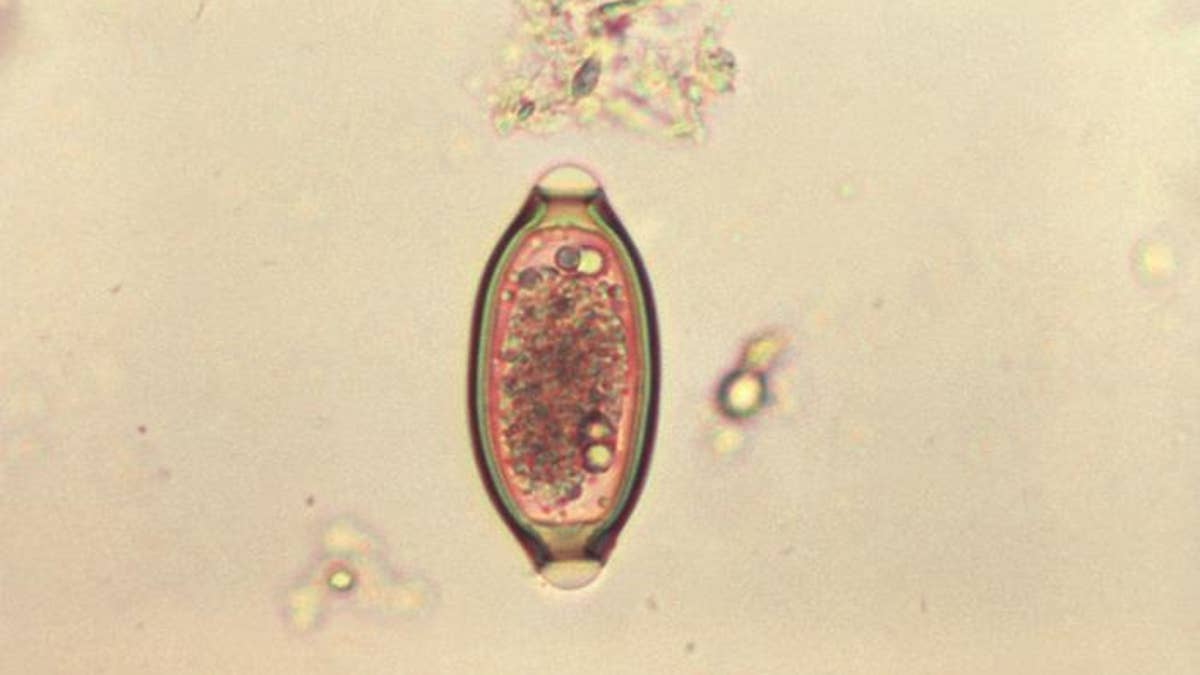
Courtesy of Centers for Disease Control and Prevention
It’s a medication technique that many may be reluctant to swallow, but it’s slowly proving to be a valuable tool in treating autoimmune disorders – ingesting the eggs of parasitic worms.
The use of this alternative medicine is all part of the hygiene hypothesis – the idea that ‘harmful’ organisms might actually be protecting our immune systems. In the 19th century, people did not bathe as frequently as they do now, and many lived among ‘filth’ – but autoimmune diseases were virtually non-existent. Subsequently, those who currently live in third-world countries also have a lower rate of developing autoimmune diseases.
Related: Scientists aim to prevent diabetes, Crohn's with worm-based therapy
Dr. Eric Hollander got the idea to study the use of the hygiene hypothesis to treat autism when he noticed one of his patients’ behavior improve while self-medicating with Trichuris suis ova (TSO), the eggs of a whipworm.
Over the past 20 years, doctors have noticed parasitic worms help alleviate symptoms for patients with Crohn’s disease, but other disorders, like multiple sclerosis and type 1 diabetes are also being studied.
Autism activated by immune system?
Now, Hollander, a clinical professor of psychiatry at Albert Einstein College of Medicine and director of Autism and Obsessive Compulsive Spectrum Program at Montefiore Medical Center, is leading a trial that will see if TSO can treat the symptoms of autism.
“There’s some evidence with autism that some individuals may have had an activation of the maternal immune system – the inflammatory response is activated during pregnancy,” Hollander told FoxNews.com. “The TSO is a naturally-occurring drug delivering device that can dampen the inflammatory response and decrease pro-inflammatory cytokines, which is something that keeps the inflammatory process going. And, that’s associated with certain symptoms we see in the autism disorder.”
Hollander said his patient failed to respond to typical treatments like Risperdal or Abilify, which is marketed for severe disruptive behaviors. Incidentally, the teenage patient also has a history of allergies and food allergies – and his family has a history of autoimmune diseases.
The family noticed their son’s autism behavior improved when he was having an allergic reaction or fever, leading them to believe there was a problem with his immune response – so they got the idea to treat him with TSO, an immunotherapy biologic agent.
Related: Parasitic worms cure autoimmune diseases?
The Food and Drug Administration has not yet approved TSO therapy, but there are ways to buy the product – either online or by traveling to another country.
Hollander does not recommend patients buy the product without doctor supervision; the safest way to try out this therapy is by enrolling in the trial.
Patient success
Hollander said his patient took a small capsule containing 2,500 whipworm ova every two weeks. By the eighth week of treatment, the patient’s behavior became less severe; by week 10, all of his symptoms had disappeared. The patient continued on this dosage for 15 months and did not have a single recurrence during that time.
“So based on the fact that this child had substantial improvement – it didn’t cure the autism, but it had a major impact on repetitive and disruptive behaviors,” Hollander said. “So, we designed a study to test this in a more systematic fashion.”
Hollander said the trial will focus on 10 adults between the ages of 18 and 35, who are of normal intelligence with good verbal skills – that way the participants can describe the effects. Participants will also have allergies or a family history of autoimmune diseases.
During the first phase of the trial, participants will either get TSO (administered in a clear, odorless liquid) or a placebo for 12 weeks. There is a washout period of four weeks, after which patients will switch to the opposite (if they first received a placebo, they’ll get the TSO product). This way, everyone has the opportunity to get active medicine and a placebo.
“During the course of treatment, we measure a range of outcomes,” Hollander said. “We’re looking to see if there’s a change in disruptive behaviors, irritability and pro-inflammatory cytokines. We’re looking to see if there’s an improvement in these inflammatory markers and also biomarkers. We’ll measure things in between genes, like eye-tracking.”
The one advantage to the trial, Hollander said, is the study is relatively safe; the eggs won’t reproduce in the gut or cause illness.
“If the pilot study is positive, then we’d want to do larger-scale studies,” he added.
The trial is funded by the Simons Foundation, and Coronado Biosciences is manufacturing the product. There is still room for enrollment in the trial. Visit Albert Einstein's research website for more information.







































